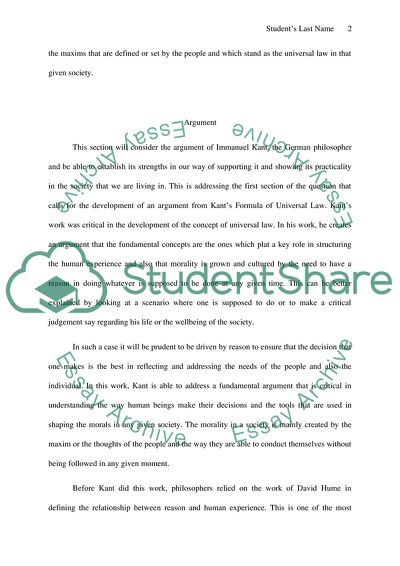Cite this document
(Kants Formula of Universal Law Essay Example | Topics and Well Written Essays - 1250 words, n.d.)
Kants Formula of Universal Law Essay Example | Topics and Well Written Essays - 1250 words. https://studentshare.org/philosophy/1833229-kants-formula-of-universal-law
Kants Formula of Universal Law Essay Example | Topics and Well Written Essays - 1250 words. https://studentshare.org/philosophy/1833229-kants-formula-of-universal-law
(Kants Formula of Universal Law Essay Example | Topics and Well Written Essays - 1250 Words)
Kants Formula of Universal Law Essay Example | Topics and Well Written Essays - 1250 Words. https://studentshare.org/philosophy/1833229-kants-formula-of-universal-law.
Kants Formula of Universal Law Essay Example | Topics and Well Written Essays - 1250 Words. https://studentshare.org/philosophy/1833229-kants-formula-of-universal-law.
“Kants Formula of Universal Law Essay Example | Topics and Well Written Essays - 1250 Words”. https://studentshare.org/philosophy/1833229-kants-formula-of-universal-law.


